#how to support self published authors
Explore tagged Tumblr posts
Text
Introducing ROTTING TREES, a 'Bezzina's Emporium of Magical Artefacts and Antiquities' novel, with FAQ
Once upon a time, I nicknamed a manuscript ‘cursenovel.’ More recently I finished it, named it Rotting Trees and, when no one I’d approached wanted to sell it, decided to publish it myself. Then I wrote this post. I do have some graphics planned to share to my social media as part of the never ending PR machine that is required of self publishing, but I thought it would be fun to have a master…

View On WordPress
#authors on Ko-fi#authors on Patreon#Bezzina&039;s Emporium of Magical Artefacts and Antiquities#cursenovel#Francesca Astraea#Francesca&039;s Thoughts#Francesca&039;s Words#Good Omens#how to support self published authors#independent YA#indie author#indie YA#Patreon author#Rotting Trees by Francesca Astraea#self published author#self published YA#The Raven Cycle#young adult author#young adult fiction
3 notes
·
View notes
Text
as the holder of extremely niche isako lore it's really important to me that you know i didn't make this whole writer thing up. the p3 club book brings up that she's a writer as a hobby, specifically so that it can then say she hasn't had any particular success with it. her whole profile is so hilarious but this bit really gets me. mean to her
#it just refers to her as a dōjin author which can include both fanfiction and original works. as long as it's self-published#i like to think she's got both under her belt ofc. look at her. that woman writes fanfiction.#but the one i made up for my comic is a webnovel she posts on her lil blog. and it probably stinks. but i love it for her. w/ all my heart#i support her awful novel. hamburg has been trying to make her realize how much subtextual yuri is in that thing for like 6 years now.
65 notes
·
View notes
Text
i think authors should unionize i just think it would be fun
#like i am so so happy & grateful that screenwriters have the wga but writers on the publishing side should have a similar support system &#access to collective bargaining . the shitshow happening right now with new leaf & the fucking dominos falling from that just goes to show#how needed that is by authors imo#i get that it's a little more difficult because publishing has so many like . kept gates . & there are so many barriers to entry & it's hard#to qualify who is or isn't a working author sometimes bc there are also so many Levels to authorship: are you rep'd? self-pub'd? on sub?#versus are you a legit tradpub'd author . but like yeah#anyway just thinkin my thoughts . authors rights!!
3 notes
·
View notes
Text
Honest Writer Thoughts
So, as of right now, I'm currently editing/rewriting a third book (unrelated to Aoh and Carousel), and then my plans are to finish and release Aoh Part 2 next year.
For the first time, probably since I started writing/imagining my own stories, I have a muse (I don't think I could ever admit who it is). (I'm also equally baffled that I have one at all. This literally happened out of nowhere). And this muse is putting a wedge between me and my books that I need to finish before taking on a new story altogether.
So what I will say is that after my third book and Aoh Part 2, be prepared for a tale of (hopefully) epic romance. 🩷

#new writing#writing#honest thoughts#honest writer thoughts#aoh#carousel#books#writer thoughts#writers life#weekend thoughts#weekend plans#writing muse#my muse#indie author#self published#i love books#historical fiction#fantasy#how i'm feeling now#can anyone relate?#writeblr#writers on tumblr#thank you for your support#thank you for listening#thank you for coming to my Ted talk
1 note
·
View note
Text
As per my last post, if yall arent aware — Cait Corrain, the author of the upcoming Crown of Starlight made a bunch of fake accounts on Goodreads to review-bomb other debut authors, almost entirely BIPOC, with 1 star while 5-starring her own book. She also added traditionally published debut authors to a list derogatorily labeling them as "self-published" hacks. She went after random books that are Greek mythology retellings, like her own is, and again targeted BIPOC authors. She even targeted my good friend RM Virtues, who is an indie author who writes queer Black Greek myth reimaginings.
Many of those she attacked were people who considered her a colleague and friend. She's tried to spin a lie about how she's being framed by someone from her Reylo fandom days, but Reylos have disproven that already.
Cait allegedly liked to brag about how her publisher treated her like royalty, and she had a massive Illumicrate deal. Her book was also getting favorable advanced reviews and had a beautiful cover, so she had nothing to be jealous of. She's potentially destroyed her career due to racism alone. Do not buy her book and do not support her.
Here is a thread if you want specifics and here is the 31-page doc of evidence.
#havent seen this on tumblr really so#in case you all weren't aware#this is gravely serious#mine#publishing#writing#author#books#cait corrain#crown of starlight
8K notes
·
View notes
Text
I've promo'd my book's tumblr account on like 4 different social medias (including tumblr itself through this account).
I've followed topic-related blogs big and small, and interacted with/reblogged their content.
I've used all manner of applicable tags both proper and conversational (ie talking through tags to make it less rigid and because it's the norm on here)
I've liked, reblogged, posted, changed the profile pic, the whole shebang.
Only thing I haven't done is directly message/ask folks requesting follows because that just doesn't feel right. And yet the book blog is completely dead in the water. I know that content-wise Tumblr users would be the most likely to enjoy the series, so obviously I'm sad about this, but I genuinely don't know what I'm doing wrong at this point 😓
If you like fantasy books; stories about angels, demons, and cool magic; casts with lgbt characters (the main characters are Aro/Ace and Pan, and many other characters are lgbt too); or even just wanna follow out of pity/sympathy, the blog is @divinetrialsseries
Don't know what else I could do to get it off the ground now, so all I can do is get down on my knees and beg. Pride is a price I'll pay to get this story the attention I dearly hope it deserves.
#writing#authors#author#books of tumblr#fantasy book#fantasy books#new author#self published#Marketing this book has been an absolute nightmare#its not that its difficult to market content-wise#its just that marketing on algorithmic social media is like log-runing and i need to stand still long enough to work on the sequel#balancing that has been hard enough already#i was hoping the site I've been using for a decade would be the easy one to use but clearly i was wrong#Honestly im frustrated and needed to rant about it#because even knowing this would be the hard part i didnt realize how discouraging it would be to see my dream drown like this#not just on tumblr but in general#I'm writing for me but it still hurts to bare your heart and have people walk right by#ive promo'd on instagram and facebook too with a liiiiittle more success#but sales for the digital AND physical copies have fully stagnated#feels like the only people that bought it are friends and families more interested in supporting me than the story#which i appreciate but definitely hurts the writing ego a little
1 note
·
View note
Text
Do people judge a book by its cover? They absolutely do. They take one look at this, and they either often instantly hate it or love it.
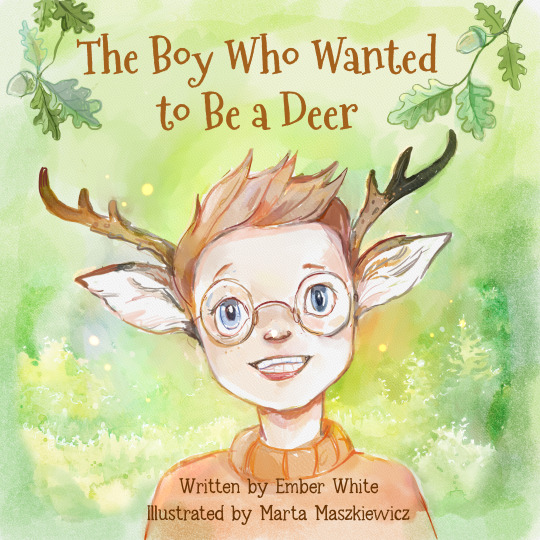
Talking about how things should be is just yelling into the void. There is just reality. And this is the reality of being a self-published indie author.

People make complete conclusions based off of incomplete information. In this case, my book, there are no adults pressuring the boy into getting any surgery. There's no mention of surgery at all even. This person is thinking of a children's book written by a very popular political figure. Some people have had the courtesy to ask me if it's like that book. It's not at all. It's not even political. It's a story told from the perspective of a kid who grows up knowing they are very different and yet can tell no one about it. Even saying a word about it would bring all of his deepest and darkest fears into reality.
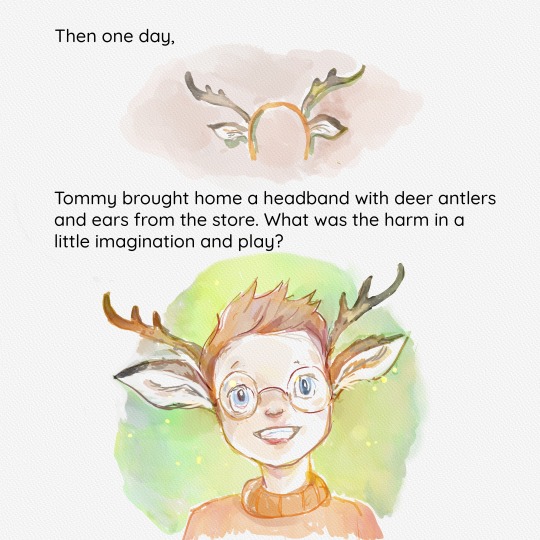
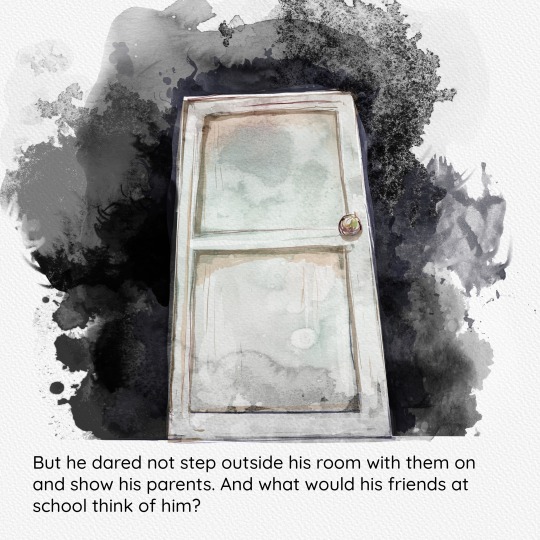
The challenge was to make the story as dark and scary as I could without ever going too far for a children's book. There are already some scary children's books and movies out there that prove what's possible, and I worked with my illustrator, Marta, to push it as far as we could go. There's one page we had to re-do almost completely because even I said that's a bit much.
But I'm very happy with the final result because we also got to do so many fun and colorful pages like this.
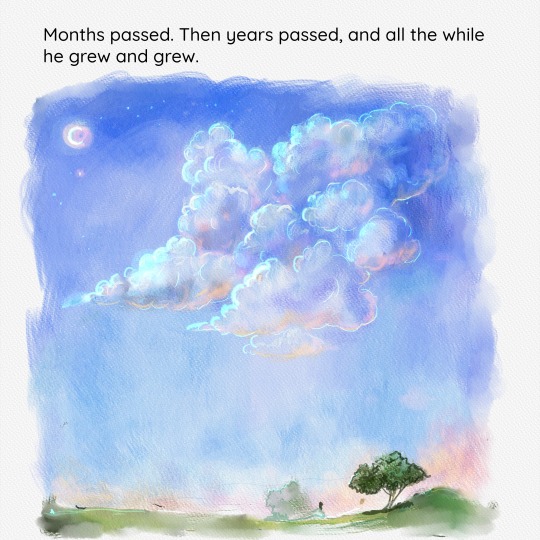
There will be plenty more drive-by reviews as the book continues to grow and grow. They take one look and see a soapbox to express all of their disappointments and frustrations in life.
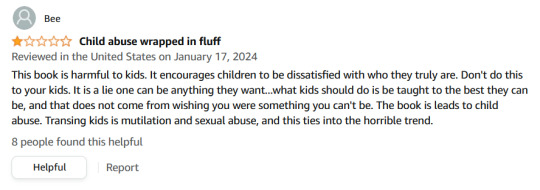
I think they might be scared of the book. The world they grew up in is slowly fading away day by day, and it's all they have come to know. They've been around for so long that everything has become a bore to them, and the only remaining pleasure is to escape into the past in order to better preserve it. I can oddly relate, actually.
So the book is on Amazon, and you can watch the whole thing for free on YouTube as well. If you get the chance, let me know what you think. Literally, watching it for free and then giving it a simple rating on Amazon is the best way to support the book. But I also love waking up to reviews like this every day.
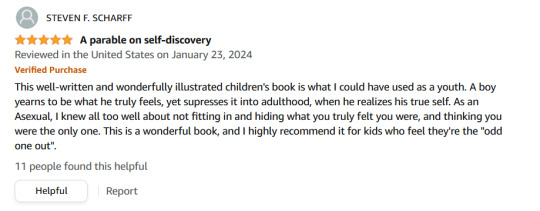
2K notes
·
View notes
Text
Author with cultural disconnect: How do I write without making it seem as if I hate my own heritage?
Anonymous asked:
I’m a white-passing Asian author, and I’ve never felt all that connected with my heritage. My current story centers on a fairy (re: fantasy-world POC) child and ends with her realizing that her parents are toxic af and her human best friend’s family takes her in. This is the perfect opportunity to sort through my own issues with my heritage and finally convince my monkey-brain that it’s okay to not know how to cook Vietnamese food or celebrate tet or speak Vietnamese… But I also realize that if I’m not careful, this could easily slip into “Hey, I hate my heritage and so should you!” So how can I stop that from happening?
Writing for yourself first, not an audience
I ask you a simple question: why put pressure on yourself to have any sort of non-offensive messaging for a story that hasn’t been drafted yet and is to convince your monkey brain it’s okay to exist as yourself?
That seems like the fastest way to stop the story from being actually cathartic and instead a performance art piece when you already feel hung up on performing as “properly” part of your culture.
As I said in Working Through Identity Issues and Other Pitfalls of Representation, not all stories you write need to be for public consumption. Especially stories you’re using for your own self-processing and therapy, because you’re trying to get a cathartic moment that is rewriting your own story.
At what point does the public need to be involved in that?
I do understand the compulsion to want to post—I have definitely posted some Questionable™ material in my drive to get validation for feeling the way I do, wanting people to witness me and say “same.” It’s a powerful urge. Sometimes it’s worked, but most of the time it’s just made me feel horrifically exposed.
But you really do not have to post in public to get any sort of validation. Set up a groupchat with friends if you want the cheerleading and witnessing—people who will know your story and give you good-faith interpretations and won’t accuse you of anything. Honestly I’d suggest setting up this groupchat anyway; as someone who just got one again after quite a few years without it, my productivity has skyrocketed from being around supportive people.
Let the monkey brain have its monkey brain moment and shut off the concept the story is for the public. Shut off the concept of performing for an unknown audience. It’s for you. Be authentic, no matter how bad it would look to outsiders. They’re not reading it. Part of getting catharsis, sometimes, is being the worst version of yourself, somewhere nobody else can see it.
Deciding to publish the work
If, after you do write it, you find that you actually do want to polish it up and put it somewhere… edit it. Rewrite it entirely if that’s what it takes. Take the story through the same drafting process every story needs to go through, ripping out the unfortunate implications as you go.
Editing can be its own form of healing, as you try to figure out what this character would need to not be hateful. As you realize, once this longform journal entry is out of your head, what was bothering you now that you can see it pinned down on a page. But you absolutely do not need to write with the intention of editing in that healing. When I’ve tried, it’s fallen flat.
The healing will come from being yourself, no public involved, and writing about your feelings in their rawest form. Anything else is extra.
There’s no point in trying to put guard rails on the drafting process, not for a deeply personal piece. And by the time that drafting process is done, you’ll likely have specific scenarios and contexts that you can ask about, and you might even have ideas on how to fix it yourself once the story has a shape to it.
This is 100% a situation where there’s no real sense in idea workshopping something in the plotting stage. You’re doing something for you. Decide if it’s for public consumption later (while acknowledging “no” is a perfectly valid answer), and only figure out how to make the story not overtly harmful if you decide to put it out into the public.
~ Leigh
979 notes
·
View notes
Note
how do i know what’s right?
i feel like i have zero critical thinking skills ;-;
a lot of the time when someone poses an idea or a theory they think they’re right, and so they use language that enforces that. but then someone refutes it, and uses language affirming what they believe and i see the point in their argument. and then it gets refuted again and again and again and im just confused.
hi great question. i would love it if there were a single easy litmus test to figure out who's 'right' and whose info i should trust! unfortunately things are rarely this easy, and it's actually completely normal to be overwhelmed by the amount of information being produced and shared, especially when it comes to topics you haven't researched/lived/etc. for most of us, this will be most topics!
i'd preface this by saying that i think your overall attitude here is actually a good one. you're framing it in a pretty self-deprecating way—but actually, imo this type of openness to discussion and disagreement is a really good place to start, esp when dealing with topics that are new to you. nobody enters a contentious debate with a fully fledged, defensible viewpoint. you might feel like you're just treading water here, making no progress toward being able to evaluate arguments for yourself, but i highly doubt that's true.
all of that said: while i again cannot give you a single litmus test for figuring out what's 'right', there are four pretty basic sets of questions that i automatically run through when encountering a new idea, source, topic, or argument: we can call these origin, purpose, value, and limitations.
origin: who's the author? do they have any institutional affiliations? who pays their salary? is this argument or paper funded in any way? is the argument dependent upon the author's social position or status (race, class, etc) and if so, are those factors being discussed clearly? does the author have ties to a particular nation-state or stakes in defending such a nation-state? what's the class character of the author and the argument? what's the social, economic, and intellectual context that gave rise to this argument or source?
purpose: why is this source or person disseminating this information or making this argument? are they trying to sell you anything? are their funders? are they trying to persuade you of a particular political viewpoint? keeping in mind the answers to the 'origin' questions, are there particular ideological positions you would expect to find in this source or argument, and are they present? what are the stakes for the author or source? what about for those who cite the source or further disseminate or publish it?
value: what does this source or argument accomplish well? what aspects of the argument are new to you and strike you as insightful? are there linkages being made that you haven't encountered elsewhere, and that you think are effectively and sufficiently defended? are there statistics or empirical data that might be useful to you in forming your own argument, even if you disagree with how this source or author is interpreting them? what does this argument or source tell you about the types of debates being had, and the rules of those debates?
limitations: where does this argument or source fail you or fall apart? are there obvious rhetorical fallacies you can identify? is the author forgetting or overlooking some piece of information that you know of from elsewhere? which viewpoints may be omitted? keeping in mind the answers to the 'purpose' questions, if this source is defending a particular ideology or political position, is that one you agree with? is it only defensible so long as the author omits or distorts certain pieces of information? are there points where the argument jumps from evidence to a conclusion that the evidence can't fully support? are there alternative explanations for the evidence?
over time you will often find that it becomes more and more automatic to ask yourself these questions. you will also find that the more you read/hear about a particular topic, the faster you can determine whether someone is presenting all of the evidence, presenting it fairly, and using it to fully defend the argument they ultimately want to make. and you will probably also find that at some point, you're able to synthesise your own argument by pulling the strong parts from multiple other people's viewpoints, combining them with your own thinking, and fitting them together in a way that adequately explains and materially analyses the issue at hand.
#sry if this feels kind of abstract lol fight between specificity and applicability#lit and literacy
2K notes
·
View notes
Note
I'm super excited for your new book, quick question though... I recently saw something about an author not getting much $ from amazon because of the way revenue/profit was allocated when the book was on sale. What are the best 3 ways to buy your book in terms of revenue for you? I'm assuming Amazon isn't great? What about B&N? small local book stores? From the link you shared? A different method?
That is an AWESOME question and extremely thoughtful! I will give the short answer and the long answer. Short answer for RUNNING CLOSE TO THE WIND specifically:
Buy the hardback from Allstora (GREAT) or my Bookshop.org affiliate store (still good) or Barnes & Noble (I won't get any extra money, but it's good for other reasons, see below) or your local indie bookstore (we love supporting small businesses)
Buy the ebook from wherever is best for you! Right now I make pretty much the same amount of money regardless of platform.
Remember to recommend it to your local library in hardback, ebook, and audiobook form. (I still make money when libraries buy my books, and libraries help new readers discover my books)
For readers outside of America: You should be able to get it everywhere, and buying it from any retailer is great! I recommend a local indie bookstore.
Longer answer for all of my books:
Right, so I do both indie publishing and traditional publishing, so this is where things get weird:
Allstora is amazing for authors. For physical copies of my books, I get between 10% and 40% of the sale price on top of the royalties i get from my publisher. It is sincerely a game-changer. Buying my books from from my Bookshop.org store, linked above, is also pretty good -- it gets me a little boost of 10% of the profits of any books you buy through my affiliate link. Pretty cool. Buying books from Barnes & Noble is good for different reasons, because while I do not get any extra money beyond my royalties, B&N is very good at reporting their preorder numbers to my publisher, which is useful data for them to know for things like how much of a marketing budget to give my books. As for buying from indie bookstores, that speaks for itself: They are the backbone of our literary society and supporting them is just a morally good thing to do. (For international readers looking to get the hardbacks: Whichever retailer you usually use is great! There's no clear frontrunner right now that gives me more benefit than any other)
For ebooks of my traditionally published books (A Conspiracy of Truths, A Choir of Lies, Finding Faeries, A Taste of Gold and Iron, and now Running Close to the wind), again, buying them anywhere is currently fine. I hear Allstora might be working on getting ebook functionality in the future, in which case that will become the answer :) For ebooks of my self-published works, however, get them from my Patreon shop. I walk away with about $8 off an $8.99 sale. It's incredibly good.
Again, recommending my books to your local library (there's usually an online form on their website) is hugely helpful because that's FREE for you and STILL MONEY for me! :D And libraries are awesome, so.
You can also sign up for my newsletter or join my Discord server to get notifications of special events when you can buy autographed books directly from me! This gets me even more money than Allstora, but I only run these events a couple times a year for special occasions.
THANK YOU SO MUCH for asking this question! I hope this helped!
254 notes
·
View notes
Note
I saw your post about ingram, and out of curiosity, is there some advantage to going through the whole self-publishing thing with retailers when you're just starting out? like I mean the way that fandom zines work is that they don't even bother going through ingram or amazon or whatever. they just set up a social media site (usually twitter) to gain followers, open preorders (usually 1-2 months in length) to generate the costs of printing upfront, and then sell anywhere from a few dozen to several hundred copies of their books (usually artbooks, but anthologies exist too). I've seen some zines generate over a thousand orders. they're kind of like pop-up shops, except for books. maybe the sales numbers aren't so impressive to a real author, but the profit generated is typically waaaay more than the $75+ apparently needed for Ingram Spark, so I still feel like new authors could benefit from this method too, especially if they just need some start-up cash to eventually move to ingram if they want to for subsequent runs of their book. I think authors would also have to set aside some of the pre-order money to buy an ISBN number to have printed on their book, and I'm not really sure what other differences there are, but I just wanted to ask about it in case there's some huge disadvantage I'm missing!
So, popup zines work well for some people, and I know some authors who kickstart their work successfully. But for a lot, it's just not feasible as a long-term stratedy. Or even as a means to get off the ground.
Fanzines succeed primarily because an existing fanbase is willing and ready to throw money at something they love. They’ve got a favorite writer or artist they want to support. Supporting all the others is just a happy by-product. They also take a HUGE amount of short-term but intense planning that just doesn’t always jive with how some of us work.
I, for one, would never offer to organize a fanzine. I’ll take part in them as a creator, but I’d rather throw myself off a cliff than subject myself to wrangling that many people and dealing with the legal logistics.
When it comes to authors doing anthologies, it'svery much the same. The success of the funding often hinges on having other big-name authors involved whose existing fans will prop up the project. Or having a huge marketing budget.
Most self-pub authors have zero marketing budget. I’m one of them, and I’m under no illusions that my work would not be as popular and self-sustaining as it is if I didn’t have a large Tumblr blog.
When I thank Tumblr in my forewards, I am utterly sincere. Tumblr brought fandom levels of enthusiasm to an unknown work and broke the Amazon algorithm so hard, that Amazon thought I was bot sniping my way to multiple #1 spots and froze my sales rankings.
That’s not the norm. And while I could probably kickstart my own work as an indie creator, that’s because I’ve put literal decades into building up a readership. I’ve been doing this since I was 16 and realized people thought I was funny. I didn’t know what to do with it or if I’d ever actually write anything, but it meant the groundwork was already there (thank you, past-me). I basically fell upward into my success by virtue of never being able to shut the fuck up and wanting to make people laugh. Clown instincts too strong.
New or first-time authors trying to sell their work without that will find it infinitely harder.
All of that aside, even if an unknown author somehow gets lucky and manages to fund their work, there’s still the question of shipping and distribution logistics. Are you shipping everything yourself? Better hope you’re able-bodied and have the time for it. (for reference, it took me months to ship out 300 patreon hardbacks because of my disabilites. It damaged my back and hands. I couldn’t type for several weeks after I was done.)
Are you going to sell primarily at conventions? Better hope you’re able-bodied, have the time and don’t have cripling anxiety about being in large groups...
Also, will selling a dozen to a few thousand copies in one burst be sustainable in the long run as a career? Not for me. Doing things via Ingram and Amazon means I earn a steady trickle of sales for the rest of my life provided the platforms remain and so long as I keep working and can generate interest in the series, not just when I have funds to pay for physical copies to sell. The one-time (in theory) cost of $75 to distribute through Ingram gets paid off pretty quick that way. And it doesn't require the same logistics as doing the popup/crowdfund.
Ultimately, it comes down to what you are capable of but also the type of work you’re doing. If you’ve got an extended network of fellow creatives who will back you or you’ve got a large following elsewhere, doing it like a popup might work for you.
If you’re an exhausted burnout who can’t fathom the short but intense amount of organization that sort of thing requires, not to mention doing it over and over and over... Ehhhhh. No thank you.
583 notes
·
View notes
Text
Webserials and Why You Should Read Them

Welcome to a short primer on webserials! The concept behind them is pretty simple: webserials, also called webnovels or webfiction, are serialized online novels. If you read long fanfics OR webcomics, you're probably already familiar with the concept. Authors release new chapters on a fixed basis, usually one chapter a week (but sometimes more, sometimes less).
You can find webserials in several places: on big platforms like tapas and royalroad, on individual authors' websites or patreons, or on newsletter platforms like substack.
So now we know what webserials are, but why should we support them?
Because webserials are fun. Because webserial authors are sharing amazing works online for free! Because the publishing industry is disproportionately hard to get into for queer and marginalized folks, and those are the people writing webserials.
To climb a little higher onto my soapbox, I believe webserials are the future of accessible and diverse publishing. There's been more and more discussion about the problems with traditional publishing: how publishers are turning it into a "fast fashion" industry, spitting out books while overall book quality decreases. Regardless of whether you believe that, it's true that the industry prioritizes "marketability" over anything else. Experimental books, passion projects, books that have a lot of heart but no pithy "tropes" -- they stand little chance in the world of traditional publishing, and self-publishing is incredibly inaccessible for most of us. It's expensive, but more than that, it takes an incredible amount of time and effort. It's a business, and at the end of the day, some of just want to share the stories we love with people we hope will love them too. And that's the beauty of webserials!
One complaint I've seen about webserials is that "you never know what the quality will be like" - and I've seen this from people who regularly read fanfiction! Like fanfiction writers, we have our beta readers, we have our editors, we pour our hearts into developing our stories. So give us a try!!
Some recs and places to get started under the cut:
My webserials:
Fractured Magic - A queer epic fantasy series about a broken hero’s hunt for redemption and an elven prince’s quest to rescue his kidnapped king. The two estranged friends are racing against time - and dead gods - to achieve their goals. Will they make up and work together before it’s too late? (This story is currently ongoing)
The Case Files of Sheridan Bell - An old-school detective mystery set in Tamarley, a fantastical city with magical murders and doors to other worlds. Basically (queer, autistic) Sherlock Holmes but with more faeries. The first mystery is complete; the second will be published soon!
Some other webserials I follow/followed from start to finish:
What Manner of Man by @stjohnstarling - a queer gothic romance novel about a priest and a vampire.
The Warthog Report by @warthogreporter- this substack contains a selection of nonfiction writing, misc. fiction writings, and Battles Beneath The Stars, a serialized story about a tournament in a fantasy world, styled like a fighting game script/walkthrough.
Kiss it Better by DogshitJay - A (definitely 18+) queer adult romance about the messy endings and messier beginnings of love.
Warrior of Hearts by Beau Van Dalen - a queer slice of life romance following an online friendship that blossoms into something more. (Beau has lots of other great webserials as well!)
More places to look:
Tapas (Community novels page)
Royalroad (mostly known for its litrpg scene, but you can find other novels and genres here as well!)
The ao3 "Original Works" tag!
#writeblr#writing#webfiction#webnovel#lgbtq books#this primer is mostly so I can link it in future posts but boosts are appreciated!!
129 notes
·
View notes
Note
just how many official tumblr blogs are there? i just recently found out that this one and changes exists which seems less than ideal
Hey, @limelocked!
Great question! We have, we hope, a great answer for you. First up is a comprehensive list of all of current active staff blogs.
You can find ’em by simply searching each name, + @, in the search bar. (i.e., @action)
@action: Highlighting Tumblr’s long-standing social justice priorities of racial justice, mental health, equality, and beyond.
@art Exploring and featuring original artists on Tumblr.
@artistalley: Supporting local artists on Tumblr by buying directly from their storefronts.
@artistpicks: Monthly curated experience by artists and creators on Tumblr.
@best-of-reblogs: A curated collection of some of the best reblog threads on Tumblr.
@bigweekon: Tumblr’s beloved podcast highlighting recent trends, memes, and more.
@blackexcellence: A showcase of things all Black, all excellent, past and present—literature, fashion, music, historical spotlights, and beyond.
@books: Exclusive interviews and curated content from authors, publishers, and book fans.
@changes: Your go-to for new Tumblr launches, bug fixes, and updates on platform.
@creatrs: A network that connects artists, makers, and builders with brands.
@emporium: The Official Blog of the Tumblr Shop™, run by Brick Whartley back from the Island.
@entertainment: Exclusive content and features from across TV, film, and streaming.
@engineering: Behind-the-scenes work on how Tumblr engineers build Tumblr.
@fandom: Home of Fandometrics, Tumblr’s weekly ranking of entertainment properties.
@fashion: Runways to streetwear and every style in between.
@featured: Featuring exclusive content from Tumblr’s many good, good blogs.
@gaming: Exclusive and curated content across mainstream and indie games.
@getloudr An in-kind ad donation program dedicated to amplifying marginalized voices.
@happytuesday: A blog dedicated to all our Tumblr Tuesdays, posts featuring users based on a weekly theme.
@humans: A blog we use so we can reply in the notes of various posts.
@kpop: Exclusive content and a curated experience of K-Pop on Tumblr.
@labs: A way for engineers at Tumblr to experiment in public.
@music: Exclusive content and features on all your favorite musical artists.
@postitforward: Supporting the community with resources for mental health, self-care, and wellness.
@prideplus: Your home for all things LGBTQIA+ on Tumblr.
@radar: Sharing four pieces of original posts from Tumblr artists per day, hand-curated by our team from across the globe.
@staff: The ultimate source for big news, platform updates, and everything that makes Tumblr, Tumblr.
@support: News, tips, and nerdy details from Tumblr Support.
@tee: A blog from your friendly neighborhood Tumblr user, Tee.
@todayontumblr: Daily curated content around trending topics on Tumblr.
@wip: Dedicated to feedback and questions from Tumblr users to Tumblr staff.
There’s more. For our global audiences, you can find all the localized Staff blogs. They’re linked here!
We also have a carousel in the feed somewhere called “Official Blogs,” but it might be that we need to make that more obvious or provide a dedicated feed or page somewhere.
Leave that last point with us, but we hope that helps! Thanks for your question, and have a good day.
(And a tip of the hat to you, @lizzieonka! Consider them tagged)
Best,
—Caragh, Cates, and Cyle
603 notes
·
View notes
Text
Back the Aether Beyond the Binary Kickstarter Campaign!
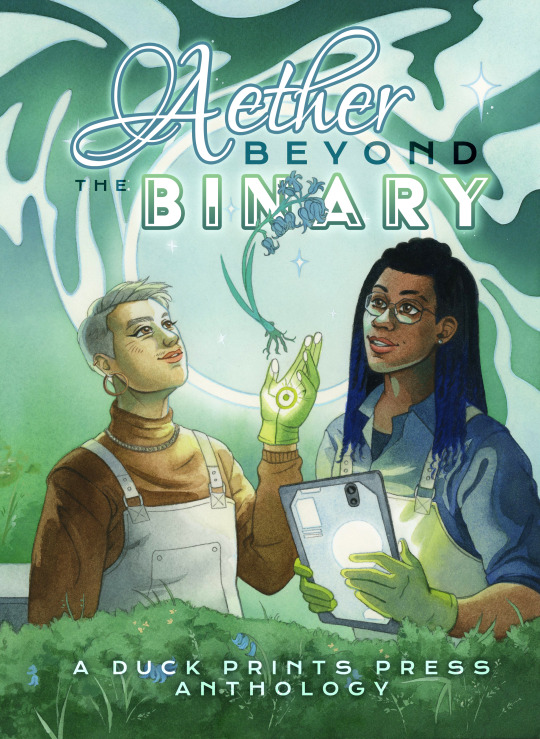
Duck Prints Press is thrilled to announce that the crowdfunding campaign for science-fantasy gender-diverse sixth anthology Aether Beyond the Binary is now live on Kickstarter!
The core concept of Aether Beyond the Binary is simple and compelling: create intriguing main characters outside the gender binary and set them loose to explore the modern world twisted or barely changed, enhanced or destroyed by magical aether. This power source may replace technology, supplement it, or oppose it. These characters may be agender, genderfluid, bigender, or any other non-binary identity. The thread that these tales share is exploration: of the world around them and of the self. We propose no conclusions; instead, we demonstrate how far-reaching the questions are and how expansive the range of possible answers can be, thereby broadening the discussion about the nature of gender and the place of genderqueer characters in science-fantasy fiction. We hope you’ll join us to explore the endless possibilities of these magical worlds.
This anthology includes 17 stories, each up to 7,500 words, by our diverse fancreators-turned-original-fiction-authors, gorgeous artwork by Mar Spragge, Pippin Peacock, Alessa Riel, and Atomic Pixies, amazing merchandise, and awesome add-on extras.
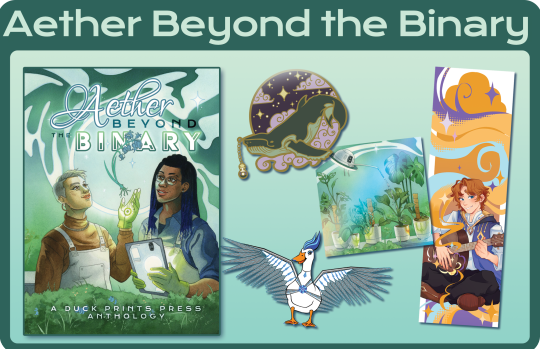
Looking for the perfect post-holiday purchase? Look no further! Get awesome, gorgeous stuff, a fantastic, erudite book, and support queer indie publishing – become a backer of the Aether Beyond the Binary crowdfunding campaign TODAY!
Campaign ends January 25th, 2024.
Patreon backers who support the crowdfunding campaign can also get an excellent extra: the adorable plant-watering backer as a key chain! So there’s no time like the present to back us on Patreon, too!
#duck prints press#aether beyond the binary#kickstarter campaign#kickstarter#queer writers#queer fiction#queer anthology#lgbtqia#nonbinary#non binary characters#aetherpunk
245 notes
·
View notes
Text
I feel so bad for professional authors who have never written fan fiction.
It’s honestly such a sad, sad thing to hear professional writers talk about awful Writers Groups, or how they feel so alone, or never get feedback, or wish they could talk to someone about their stories… while I sit there thinking Fanfic! Fanfic! Fanfic!
I’ve lost count of the number of times I’ve recommended to paid authors to create an AO3 account and publish some self-indulgent fanfiction just to stretch their creative muscles — and also to find moral support, love, and community — without all the combative jealousy that comes from the struggle to get things published.
Fanfic authors — Writing fan fiction has taught you WAY more than you realize.
I’m in my 5th Paid Writing Class now (across many different types of writing) and seriously — Writing fanfic taught me so much and gave me so much in return. Very grateful to all of you!!
104 notes
·
View notes
Text
5 Ways to Set Yourself Up For Success as an Aspiring Author
While these things don’t guarantee your manuscript will be picked up or that you’ll sell more books (and aren’t necessary to achieve that!) here are five things that publishing houses look for in authors to help make the book as successful as it can be, and you can start working on now.
1. Get an agent
I can’t say this is true across every publishing house, but in my small publishing house that accepts submissions from both agented and non-agented writers, we move the agented writers to the top of the manuscript pile. This is because they already have a professional in the industry who has vouched for the work.
However!! Important to note that a bad agent can tank your chances as much as a good one can raise them. I had a coworker say about a particular agent, “if I was on the fence about a manuscript and saw (the agent) was representing it, I would move it to the pass pile.” The agent was in general difficult to work with and didn’t actually listen to what her writer wanted, demanding for the house to make poor marketing decisions for the book based on her own personal opinion on what looked good. Oh, and she had also worked in publishing for Penguin Random House for over a decade, so what previous experience they have in the publishing world isn’t all you should consider when reaching out to agents. You want people with lots of experience actually—y’know—agenting.
Check out their previous clients and how many they have! Yes, small agents with only a few years of experience can still be amazing—but make sure you do your research no matter how experienced they seem and see if you can’t do a background check. (The agent mentioned above ended up firing her author! I’m sure the author has tales to tell about her).
2. Come up with marketing ideas
Your publicist is going to do so, so much work for you. Seriously, we have some really awesome publicists who are kicking ass submitting to contests and putting on events and sending authors on tour—but they’re also managing several titles at once, so authors who can pull their own weight a bit when it comes to coming up with marketing ideas for their book are highly appreciated.
If you ever have any ideas on how to reach your specific audience, write them down and try to fill them out with as many details as possible (who is involved, where will it happen, how will it happen, how much funding it requires etc.) and share them with your publicist, the marketing team will thank you for it!
3. Form relationships with the industry!
This one is huge! One thing we actually ask of authors right off the bat is if they know any industry contacts such as booksellers, media contacts, or other professionals/authors. If you can, intern/volunteer/or work for a newspaper, magazine, book store, agency, or anything similar. Having a list of people who know and like you to reach out to for writing articles or otherwise supporting your release is going to help a lot with the promotion and selling of the book! People are much more likely to help out or feature the book of someone they know, rather than a stranger, so start collecting your contacts now.
4. Grow some sort of social media following
Definitely not essential, but seen as a boon for sure if writers already have a community that are likely to support their new release. If you can point to a group of people that already like you or are interested in your work, we’re going to see that as an asset! Especially for book launches—there’s no greater publisher’s fear than a tanking book launch, and it’s so much more likely to go well if you have a community of people you know will show up.
5. Trust your publishing house
You’d be surprised how many authors drag their heels and kick and scream when it comes to the marketing decisions our team makes. While yes, a cover you aren’t necessarily thrilled about, or author bio that sounds a little too self-aggrandizing can suck a bit, know that these decisions are coming from people who have decades of experience in the industry and know how to get your book into the hands of readers. If they think a certain cover, title, subtitle, bio, photo, layout, etc. etc. would be best for your book, trust them. They’re the pros.
I’m happy to answer any other questions you have about the publishing world!
#writing#creative writing#writing community#writers#screenwriting#writing inspiration#books#filmmaking#film#writing advice#publishing industry#publishing advice#trad publishing#traditional publishing#5 Things to Set yourself up for success as a writer looking to get (trad) published#5 things#getting published
96 notes
·
View notes